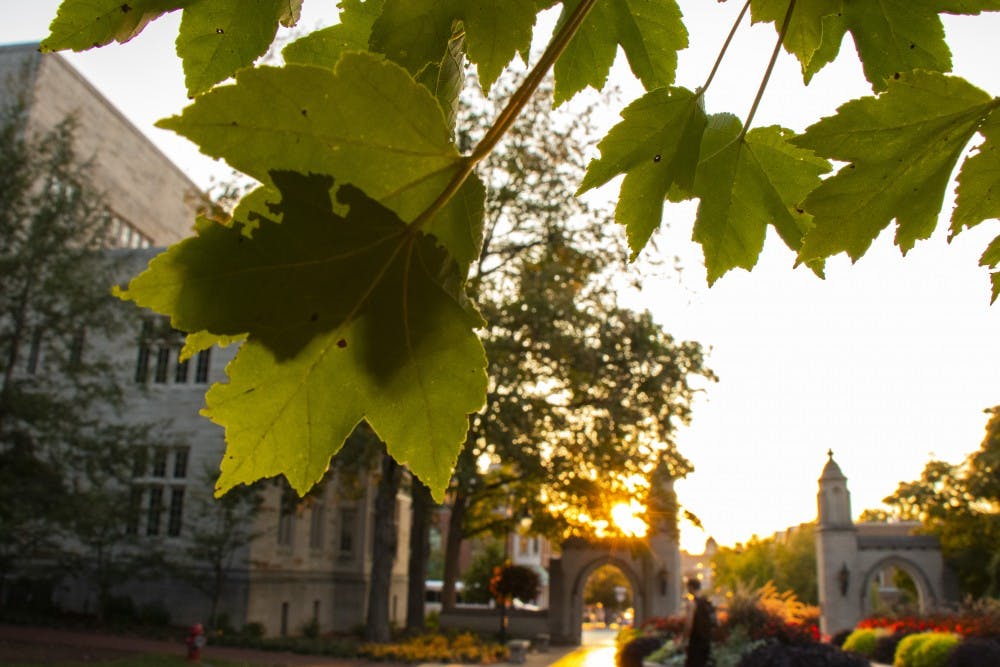IU professors, research fellows, faculty, students and community leaders will gather 9 a.m. Friday in Room 216 in IU’s Geology building to discuss climate change.
This 2019 Environmental Resilience Institute Fall Research Symposium will serve to bridge the gap between research and action, said Matthew Houser, adjunct assistant research scientist for the department of sociology and midwestern/Indiana community studies fellow for the ERI.
This is also one of the goals of the ERI as a whole, in addition to conducting more local and regional climate change research.
“The ERI was really founded to sort of be a place for that to happen,” Houser said. “Where we could bring researchers and policymakers – the people that do a good job of going out into the community – together to actually get the science right on climate change in the state and the region and figure out how to get that science to make a difference.”
ERI Director Janet McCabe said the ERI’s goal is to help Hoosiers become more resilient to the effects of current and future climate change and also educate them on ways to lessen their negative impact on the climate.
“That is something that requires biologists and geologists and meteorologists and artists and historians and lawyers and policy people and business people, people with all different kinds of expertise to come together to help us,” McCabe said.
The symposium was put together by Houser and the other 10 ERI fellows. There are three sessions of the event comprised of three different topics: effective communication, accurate predictions and feasible solutions respectively, each relating to approaching the issue of climate change.
In each of the sessions, there will be speakers followed by breakout sessions or a panel discussion.
Speakers at the event include Jim Poyser, executive director for Earth Charter Indiana, and Nathaniel Geiger, associate professor of communications science for the Media School.
In the past, Geiger has conducted research on the effect of the 2017 March for Science and 2017 People’s Climate March on public opinion regarding climate change. He has also researched factors that motivate people to participate in rallies.
“One of the strongest predictors of taking action is whether somebody that they know asked them to participate,” Geiger said. “This is really interesting because it suggests potentially that the people that are most likely going to be participating in these events will be people who have friends or acquaintances that are also participating.”
Geiger will speak about climate advocacy and the public during the symposium.
Other speech topics include educating for environmental change, climate modeling of geoengineering and science communication through art.
In addition to the ERI symposium, the global climate strike will take place on campus tomorrow. The timing of the symposium in regard to the strike was not planned, McCabe said.
“It’s just coincidental that it happens to be the same day,” McCabe said. “There are only so many Fridays in September.”
Houser said although he is bummed he probably won’t get to witness the march, he feels like he is still doing his part by attending the symposium.
“The whole symposium is climate change, like let’s figure out ways to deal with it in the state, let’s talk about what we’ve done over the past year,” Houser said. “So, we feel like we are participating as best as we can in that way.”




